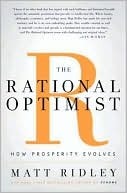‘One of the most extraordinary facts of the [eighteenth] century was the enlargement of the consuming classes,’ says Robert Friedel. ‘There was a consumer revolution in eighteenth century England,’ writes Neil McKendrick: ‘more men and women than ever before in human history enjoyed the experience of acquiring material possessions.’ Compared with mainland Europeans they were wearing wool cloth (as opposed to linen), eating beef (as opposed to cheese) and white wheat bread (as opposed to rye). For Daniel Defoe, writing in 1728, a low level of demand from the masses was far more important
Welcome back. Just a moment while we sign you in to your Goodreads account.


